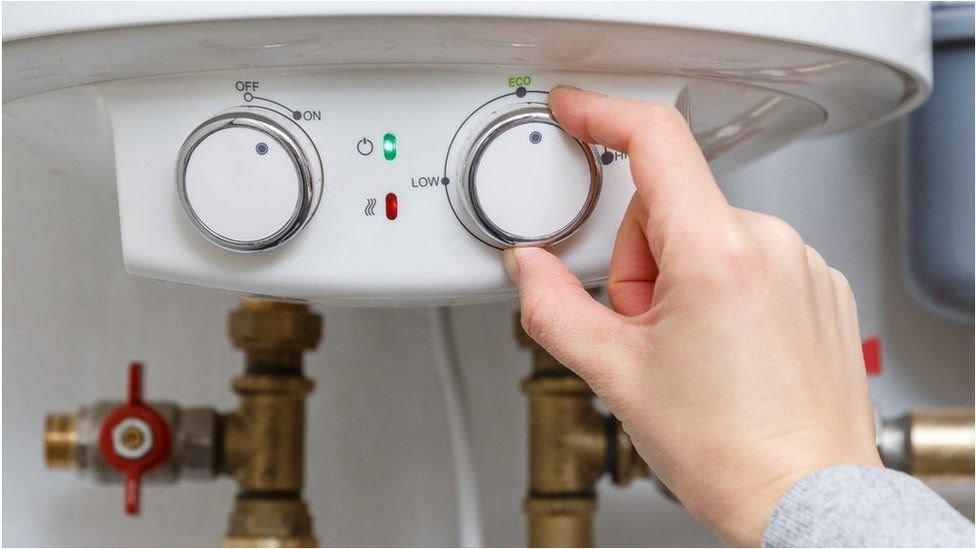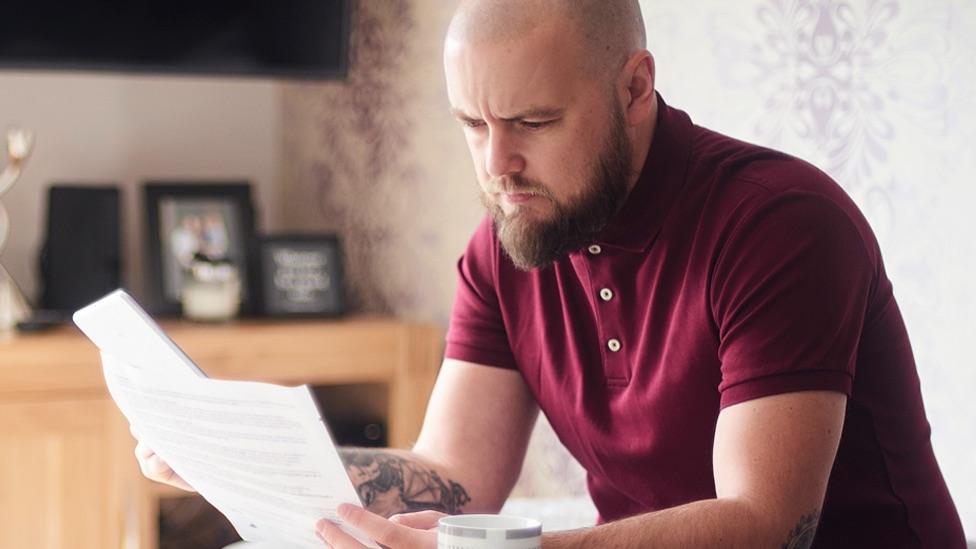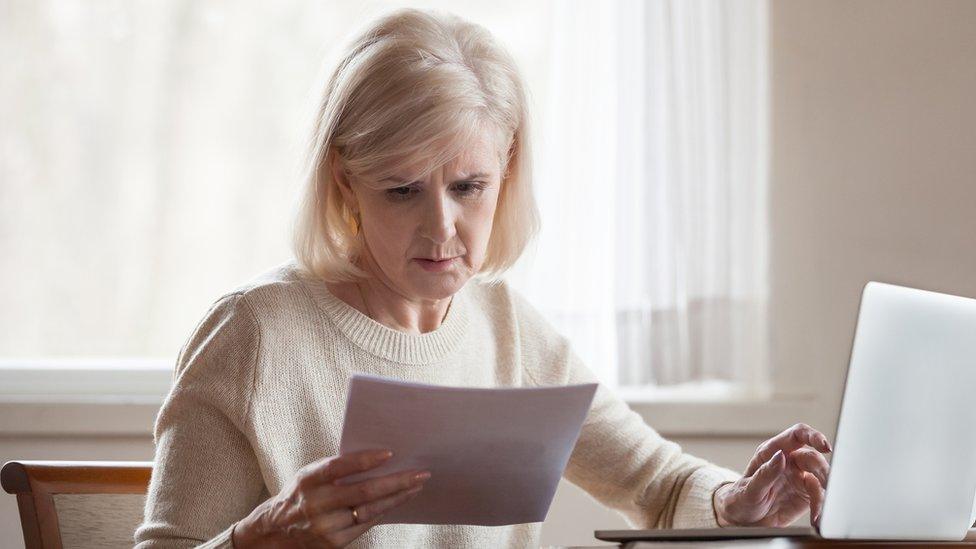Q&A: What can be done to help with energy costs in NI?
- Published

There has been a steep increase in energy prices for households
Energy costs are continuing to rise in Northern Ireland with gas supplier Firmus Energy putting up its prices in greater Belfast by another 37% on Tuesday.
Is there anything that Stormont could do to help with the cost of living after May's election?
Is there money to spend?
The Northern Ireland Executive has a pot of about £330m that it could use.
This is money which has been allocated to Northern Ireland as part of wider UK public spending decisions.
It is not certain that all that money would be used to help with the cost of living.
For example, the Department of Health is likely to want additional funding to help tackle ongoing Covid-related pressures.
What needs to happen politically?
Northern Ireland has not had a fully functioning executive since February, when the Democratic Unionist Party (DUP) withdrew from the first minister's post in protest at the Northern Ireland Protocol.
Finance Minister Conor Murphy is adamant that new spending allocations cannot legally be made in the absence of an executive.
He has taken advice from the Stormont legal service and the attorney general.
The DUP has said it does not accept that all legal options for allocating the funds have been tested.
But at the moment it looks as though the money will not be released unless a new executive is formed.
If that happens what can be done?
Stormont's Department for Communities has already implemented a £55m scheme which paid £200 grants to about 280,000 people.
It was targeted at people on benefits with no application process required.
It went to people claiming universal credit, income-based job seekers' allowance, income support, income-related employment and support allowance and pension credit.
The quickest and easiest move would be to simply re-run that scheme.
It could possibly be tweaked to make it more generous or to cover claimants of other benefits.

The high street voucher provided a £100 pre-loaded debit card to almost all adults in Northern Ireland at a cost of about £145m
What about a universal scheme?
Stormont's Department for the Economy has recent experience of running a universal grants scheme.
The Spend Local high street voucher provided a £100 pre-loaded debit card to almost all adults in Northern Ireland at a cost of about £145m.
It was intended to help stimulate the economy after pandemic lockdowns.
That scheme could also possibly be re-run, this time billed as a cost of living voucher.
However, a universal approach would obviously mean that some money would go to people who did not need it, which might be politically unattractive.
What about a new means-tested scheme?
This is also likely to be politically unattractive, because setting up an entirely new scheme would be complicated and time consuming.
Means-tested schemes are also more expensive to administer as they have to involve the checking of eligibility.
A means-tested scheme, which involves an application process, could also lead to vulnerable people missing compared to the Department for Communities scheme where payment was automatic.
Could Stormont reverse the £20 a week cut in Universal Credit?
Westminster had increased universal credit, the main working age benefit, by £20 a week during the worst of the pandemic.
That uplift ended at the start of October.
Social security is legally devolved to Stormont, but it normally mirrors the wider UK system.

The uplift for universal credit ended at the start of October 2021
If Stormont wants to run a more generous system it needs to find the money from within its existing budget.
So Stormont could legally do this, but it would need administrative co-operation from the UK's Department for Work and Pensions (DWP).
This option might not be politically attractive on either side of the Irish Sea.
Stormont ministers only have a limited pot of funds - when that money runs out they would have to reverse the increase which would be politically unpopular.
Alternatively, they would be on the hook for a major unfunded spending commitment.
UK ministers might not want to lend the support of the DWP as it would inevitably raise the question of why universal credit was not being increased in other parts of the UK.
- Published14 June 2022

- Published1 March 2022

- Published10 October 2021
